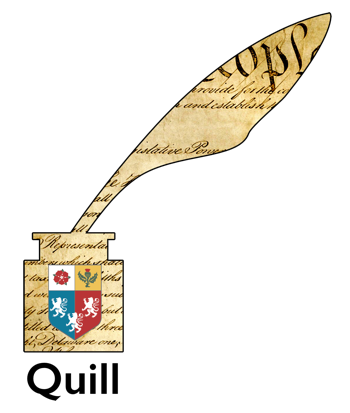Profile

Name
None
Profile
None
Website

Involved in
Description: The Forum for Political Dialogue met between 1996 and 1998 in Belfast as part of the negotiations that led to the Good Friday Agreement.
As: editor senior editor
Description: A model of this round of all-party talks, often known as the "Mitchell Talks", is forthcoming in Autumn 2024.
As: user contributor editor
Description: Dublin Forum convened by the Government of the Republic of Ireland
As: user contributor editor
Description: The International Body on Arms Decommissioning was appointed as part of the twin-track process. It was led by the people who would later become the Independent Chairmen of the 1996-1998 peace talks. They produced the Mitchell report, which set out, amongst other recommendations, a list of principles which all parties signed up to as the basis for the talks.
As: user contributor editor
Description: WORK IN PROGRESS - IN THE FINAL STAGES OF EDITING A series of talks launched by Peter Brooke, Secretary of State for Northern in Ireland, which began in April 1991, and were carried on intermittently by Brooke and his successor, Patrick Mayhew, until November 1992.
As: contributor editor user
Description: A selection of mini-models designed to provide an insight into the ongoing work of 'Writing Peace' and to demonstrate Quill's approach to visualising the archive material and tracking the process of negotiation. This collection is still under construction.
As: user
Contributed to
Description: From the mid-1980s, John, now Lord, Alderdice, was intimately involved in the Irish peace process. His archive spans more than thirty years of negotiation and implementation, from his early days in the Alliance Party in the 1980s, through his leadership of the party during several phases of multi-party talks in the 1990s, to the implementation of the Good Friday Agreement during his time as the first Speaker of the new Northern Ireland Assembly. It also includes a small section on the Sunningdale Conference, inherited from previous party leaders, as a testimony to the origins of the 1998 Agreement. The documents which can be viewed in this resource collection were used to model Brooke/Mayhew talks and span the period from 1985 to 1992. They are also contained in the John Alderdice Collection, which includes all the documents digitized by Quill.
As editor
Description: This collection of treaties, agreements, legislation, and joint statements relating to the status of Northern Ireland was commissioned by ARINS. The primary source materials in this resource collection were compiled by Harriet Carter and Ruth Murray, and are currently being used to construct a digital model of the Peace Process which will enable users to better understand the context within which key decisions and compromises were made, the origins of particular phrases, and the developing roles of individuals and political parties.
As editor senior_editor
Description: Monica McWilliams is Emeritus Professor in the Transitional Justice Institute at Ulster University, and has campaigned tirelessly for peace and human rights in both Northern Ireland and the wider world for more than four decades. As co-founder of the Northern Ireland Women’s Coalition (NIWC), she was elected to the Multi-Party Talks in 1996 at a key juncture in the peace negotiations. The section of her archive digitized as part of this project focuses on the negotiation of the Good Friday Agreement (1998-2003) and the process of implementation during Professor McWilliams's time as a Member of the Legislative Assembly (1998-2003). The digitization of the Monica McWilliams Collection is a partnership with Queen's University. The physical archive is housed in the McClay Library, along with wider records of the NIWC and Professor McWilliams’s work with the Northern Ireland Human Rights Commission. This collection was catalogued and digitized by Ruth Murray, Annabel Harris and Harriet Carter. The structure of the Collection is based on the categories used in Professor McWilliams's own filing system. Some reorganization has taken place to interweave loose papers and to ensure that records from each Committee are co-located for easier reference.
As editor senior_editor
Description: From the mid-1980s, John, now Lord, Alderdice, was intimately involved in the Irish peace process. His archive spans more than thirty years of negotiation and implementation, from his early days in the Alliance Party in the 1980s, through his leadership of the party during several phases of multi-party talks in the 1990s, to the implementation of the Good Friday Agreement during his time as the first Speaker of the new Northern Ireland Assembly. It also includes a small section on the Sunningdale Conference, inherited from previous party leaders, as a testimony to the origins of the 1998 Agreement. The section of Lord Alderdice's archive digitized as part of this project focuses primarily on his role in the Multi-Party Talks of the 1990s. A wider collection of his papers, documenting his contribution to liberal politics and conflict resolution in other countries, is held in the McClay Library at Queen’s University in Belfast. The Alderdice papers to which Quill originally had access were catalogued and arranged chronologically in three subsections, 1985-1992 (particularly focusing on 1991-1992), 1992-1995, and 1996-1998, representing the three main attempts to reach agreement in the 1990s. Papers handed over by Lord Alderdice after this initial cataloguing process had been completed are currently in a separate box and span the whole period. This collection was catalogued and digitized by Ruth Murray, Harriet Carter, Sofia Panourgias and Annabel Harris.
As editor
Description: The Forum for Political Dialogue met between 1996 and 1998 in Belfast alongside the negotiations that led to the Good Friday Agreement. The Records of Debate were originally posted on the Forum's website, which has since been archived. Lord Alderdice later commissioned print versions of the records. The structure of this Collection is taken from the six printed volumes of the Record of Debate and follows the divisions therein. It was digitized and catalogued by Harriet Carter and Jamie Pitts.
As editor